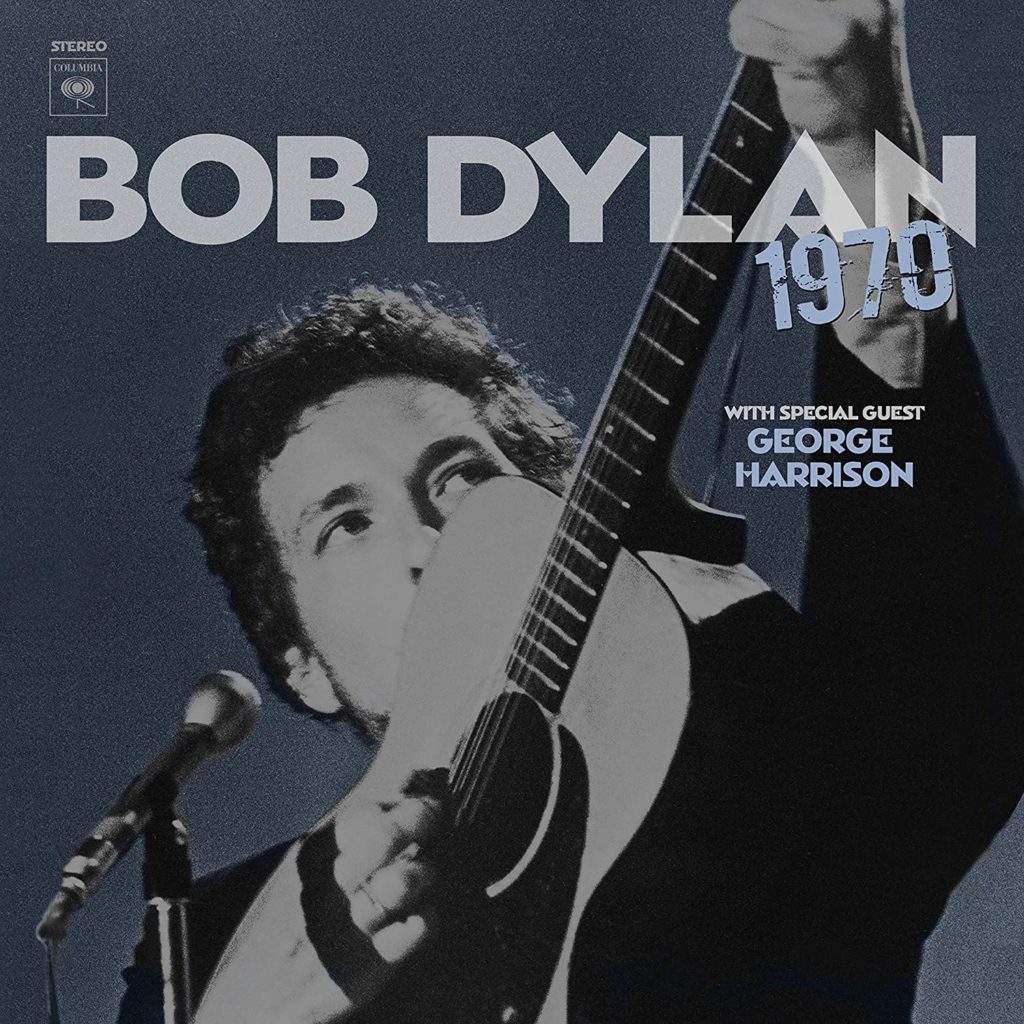 At this point, you might understandably be starting to suspect that Bob Dylan’s vaults are as big as an Amazon warehouse. Our first look inside came in 1985, with the release of Biograph, a three-CD set that incorporates a smattering of previously unavailable material. But the floodgates really began to open six years later, with the launch of the Bootleg Series, which has since delivered more than a dozen multi-disc collections containing more than 50 CDs’ worth of rarities.
At this point, you might understandably be starting to suspect that Bob Dylan’s vaults are as big as an Amazon warehouse. Our first look inside came in 1985, with the release of Biograph, a three-CD set that incorporates a smattering of previously unavailable material. But the floodgates really began to open six years later, with the launch of the Bootleg Series, which has since delivered more than a dozen multi-disc collections containing more than 50 CDs’ worth of rarities.
And that’s not all: Dylan has also offered up a variety of other archival releases that have not been labeled as part of the Bootleg Series. In 2018, for example, his record company issued Live 1962–1966: Rare Performances from the Copyright Collections; then there’s The Rolling Thunder Revue: The 1975 Live Recordings, which delivers more than 10 hours of music on 14 discs, and The 1966 Live Recordings, which contains a whopping 36 CDs and boasts a playing time of nearly 30 hours.
Granted, some of this material varies only slightly from previously released performances and is probably of interest just to fanatical fans. But lots of it is not only excellent but revelatory. Still, fans whose wallets are beginning to thin out may be wondering when the archival material will stop coming.
Who knows, but it hasn’t stopped yet, because another from-the-vaults collection is upon us. Called Bob Dylan 1970, this three-disc set contains 74 tracks, all of them previously unreleased and all of them recorded during 11 sessions in a six-month period beginning in March 1970. In addition to Dylan, who plays his usual guitar and harmonica plus a generous amount of excellent piano, the performances feature lead guitar and background vocals by future Traveling Wilbury George Harrison on nine tracks, plus such familiar names as David Bromberg (guitar, dobro, bass, mandolin), Al Kooper (organ, piano), Russ Kunkel (drums) and Charlie Daniels (bass, guitar).
Related: Five years later, Dylan would release one of his masterpieces
A great deal of material from these sessions, which led to Self Portrait and New Morning, has already been featured in the four-disc Bootleg Series, Vol. 10: Another Self Portrait (1969-1971). And if you’re looking for the key outtakes from this period, that set should be your first stop. Bob Dylan 1970—whose issuance was undoubtedly prompted by the need to protect European copyrights, which expire 50 years after a recording—digs deeper, offering fans more alternate versions, plus a wide array of previously unheard covers.
Roughly a third of the program consists of variations on 10 of New Morning’s dozen songs. There are eight recordings of “If Not for You,” seven of “Sign on the Window,” five of “Went to See the Gypsy” and one each of “New Morning,” “Day of the Locusts,” “Father of Night,” “One More Weekend,” “Three Angels,” “Winterlude” and “Time Passes Slowly.” There are also a few compositions that found their way onto the original Self Portrait, such as “Alberta” and “Woogie Boogie.”
Listen to “Went to See the Gypsy” (Take 6)
Here, too, are variations on songs from other assorted Dylan LPs, including “Song to Woody” (from his eponymous 1962 debut), “It Ain’t Me, Babe,“ (from 1964’s Another Side of Bob Dylan), “Gates of Eden” (from 1965’s Bringing It All Back Home), “Just Like Tom Thumb’s Blues” (from 1965’s Highway 61 Revisited), “Rainy Day Women #12 & 35” (from 1966’s Blonde on Blonde) and “I Threw It All Away” (from 1969’s Nashville Skyline).
While virtually none of these recordings outshines the familiar versions, they’re consistently interesting, especially when Dylan varies lyrics or tries out different arrangements. Even more fascinating, though, are the set’s many covers. They include traditional material such as “Come All You Fair and Tender Ladies” and the Cajun evergreen “Alligator Man,” as well as the Beatles’ “Yesterday” and songs by a few of Dylan’s 1960s folk contemporaries, such as Buffy Sainte-Marie (“Universal Soldier”), Eric Andersen (“Thirsty Boots”) and Tom Paxton (“I Can’t Help but Wonder Where I’m Bound”).
Also featured are rock and pop oldies like Carl Perkins’ “Matchbox,” Elvis Presley’s “Can’t Help Falling in Love,” the Everly Brothers’ “All I Have to Do Is Dream” and Sam Cooke’s “Cupid.” Plus, in the now-you’ve-heard-everything department, Dylan offers Jay and the Americans’ “Come a Little Bit Closer” and a medley of the Shirelles’ “I Met Him on a Sunday (Ronde-Ronde)” and the Crystals’ “Da Doo Ron Ron.”
Such song choices may initially seem surprising, given how little the material has in common with the bulk of Dylan’s own compositions. But they shouldn’t come as a shock to anyone who has heard, for example, his Theme Time Radio Hour, the covers in his original Self Portrait, or his exploration of Frank Sinatra’s songbook on 2016’s Fallen Angels. Dylan has never respected musical boundaries and has always appreciated good material regardless of its source.
Don’t come to this collection looking for polish. These are rough (albeit professionally recorded) performances, and a handful are mere snippets: the traditional “Fishing Blues,” for instance, runs all of 26 seconds while a reading of Dylan’s own “Rainy Day Women #12 & 35” lasts only about a minute. (On some of the abbreviated performances, it sounds as if he stops playing; on others, it appears that the tape may have simply run out.)
Don’t let this keep you away, however, because the album’s casual, homespun nature actually represents one of its greater charms. This is your chance to be a fly on the wall and listen in as Dylan explores his options, tries out different voices, savors his music and delivers a wide variety of songs—including some that he clearly sings and plays just for the fun of it, not with any intention of polishing the performance for release.
Listen to “Sign on the Window” (Take 1, Remake – May 1, 1970)

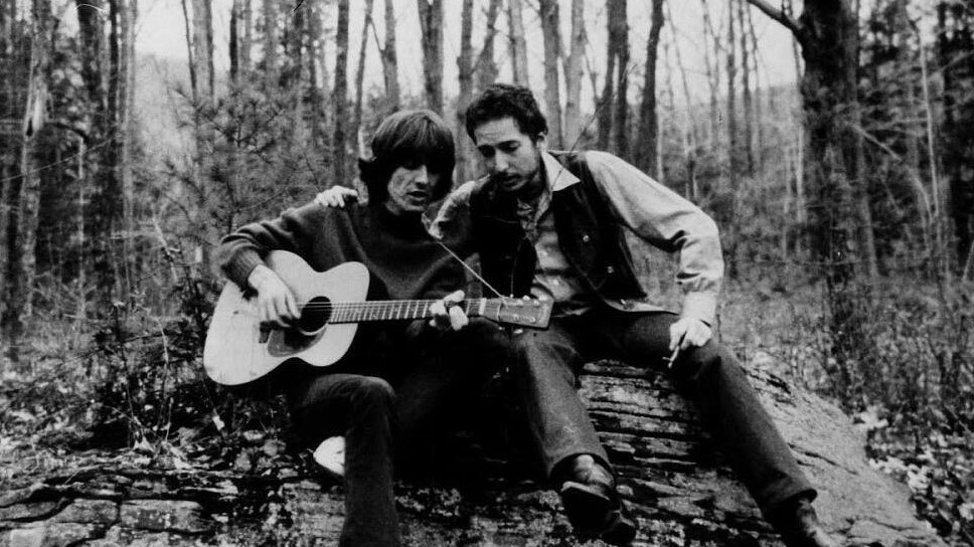
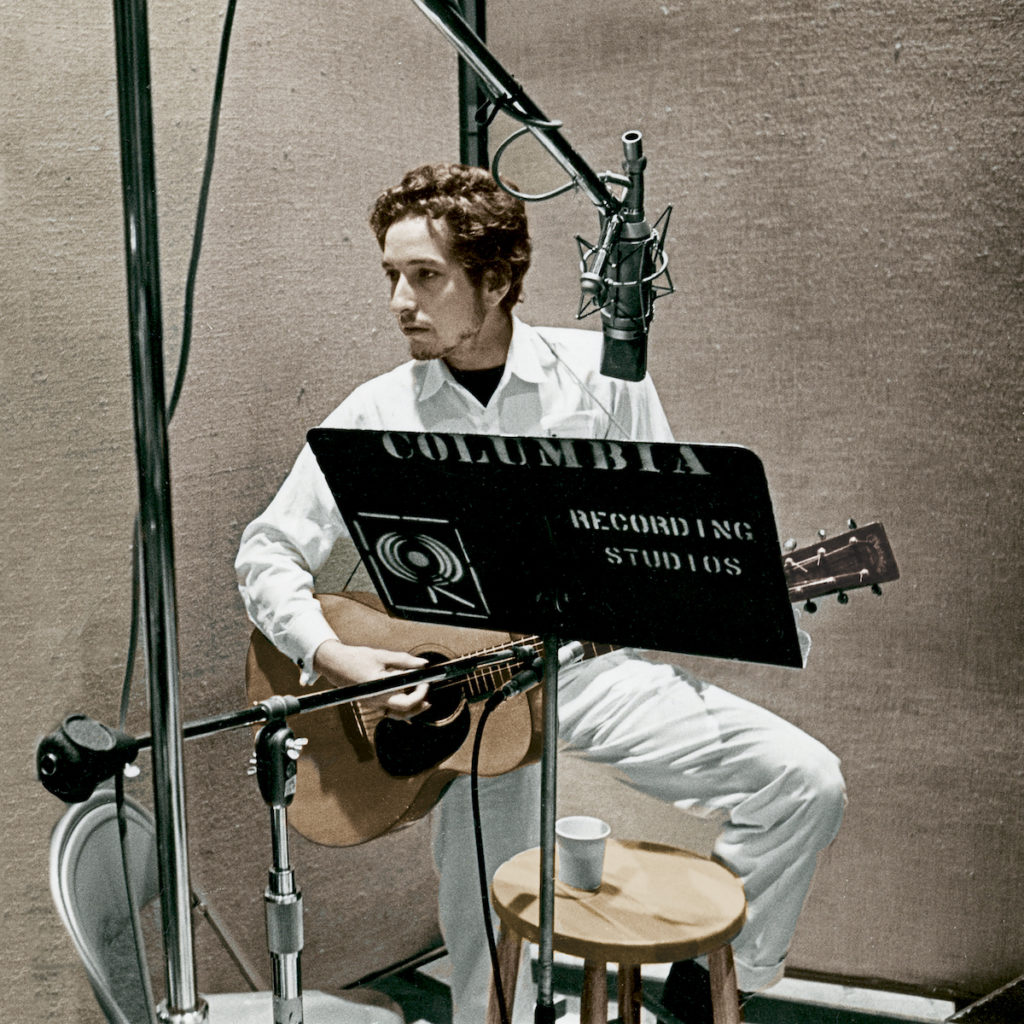
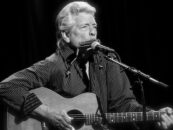
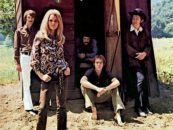

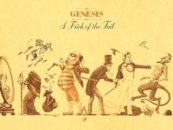

No Comments so far
Jump into a conversationNo Comments Yet!
You can be the one to start a conversation.